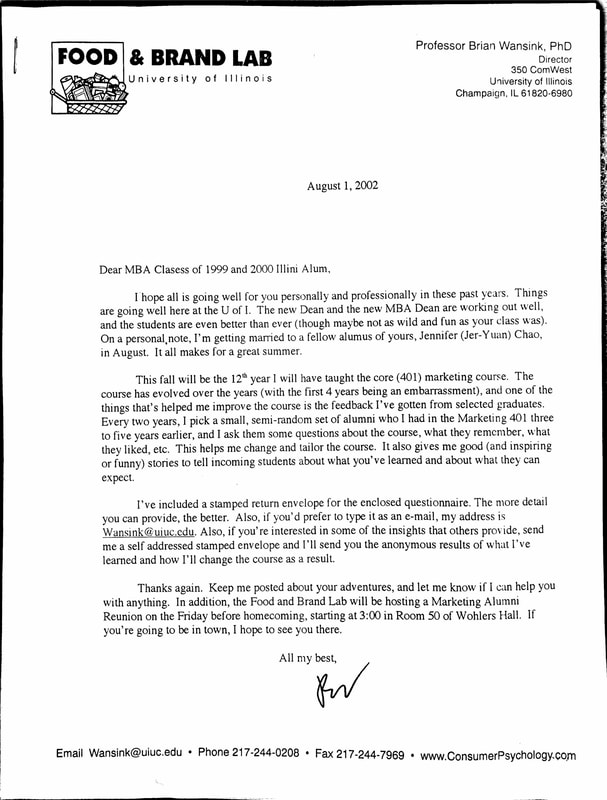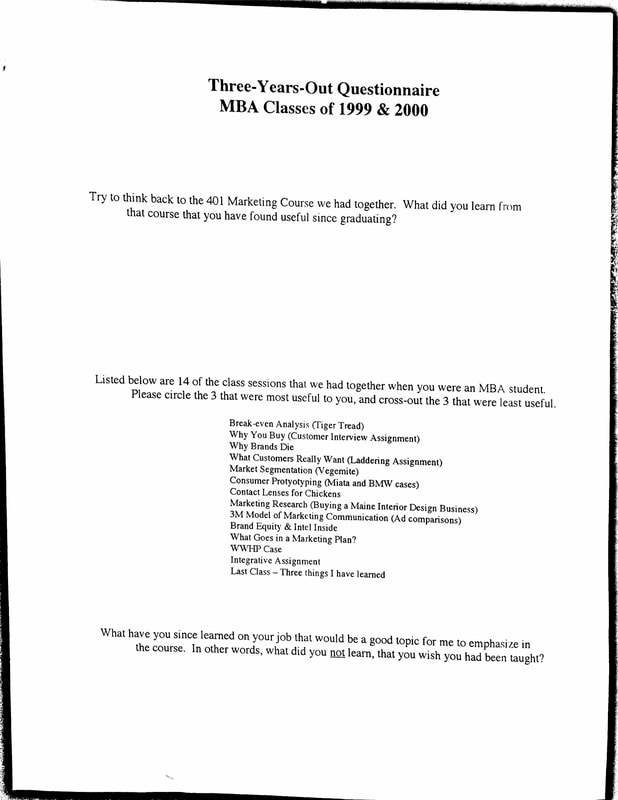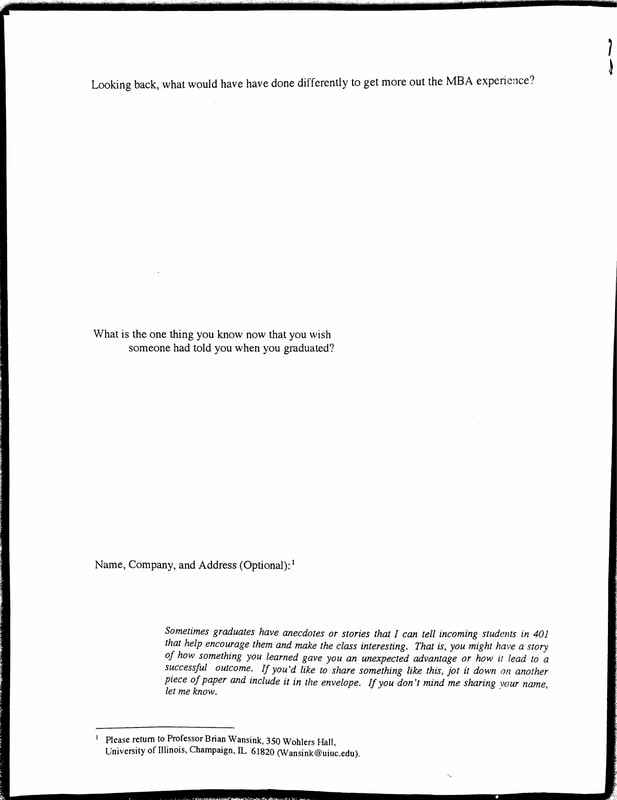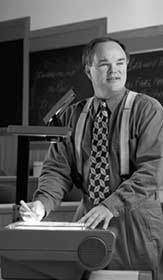How to Teach for Long-term Impact
(Sample Open-end Course Evaluation Survey)
Teaching Tool
|
Most course evaluations are given out right at the end of the course. This is right when there’s either personality-driven afterglow or it is when here’s fuming because of a recent bad grade. Another way to view teaching is to focus on the long-term impact of a course and not the immediate taste it left with a student. I once talked with someone who believed his goal isn’t to teach them to get their first job (or to, analogously, get a high score on the GRE or MCAT), his goal was to teach them to succeed for wherever they will be in 10 or 20 years (read more). Although he got outstanding teaching ratings, he brushed them off by saying that teacher ratings might capture style (which he was very good at), but not long-term impact. One way to teach for long-term impact is to ask students. After they graduate, it will be more apparent to them whether your course helped them live a better life (more useful, meaningful, successful, or whatever), and how the course might be improved. It’s easier to get this feedback. You can simply ask former students. You’ve probably saved your class lists from 5 years ago. If you don’t have their email, your school’s alumni office should have either their email or their snail mail address. Then you can simply write up a note, write up a short survey, and send it off. If you want an example, on the left there's a downloadable version of a short, open-ended survey that was regularly sent to students a couple years after they graduated. It asks them what they remember, what they found most useful, what they wish they’d learned, what anecdotes they might have related to class, and then it lists the class sessions and asks them to circle their 3 most useful class sessions and to cross out their 3 least useful. Sending the right type of email will help you get a great return. The first page of the download has a bunch of ideas you can use in your email or cover letter, and the second pages have example questions you could adopt for your courses. Doing a long-term teaching survey may not guarantee that they’ll be discussing the impact your course had on them at the next 20-year reunion. But they may discuss how hard you tried.
| ||||



